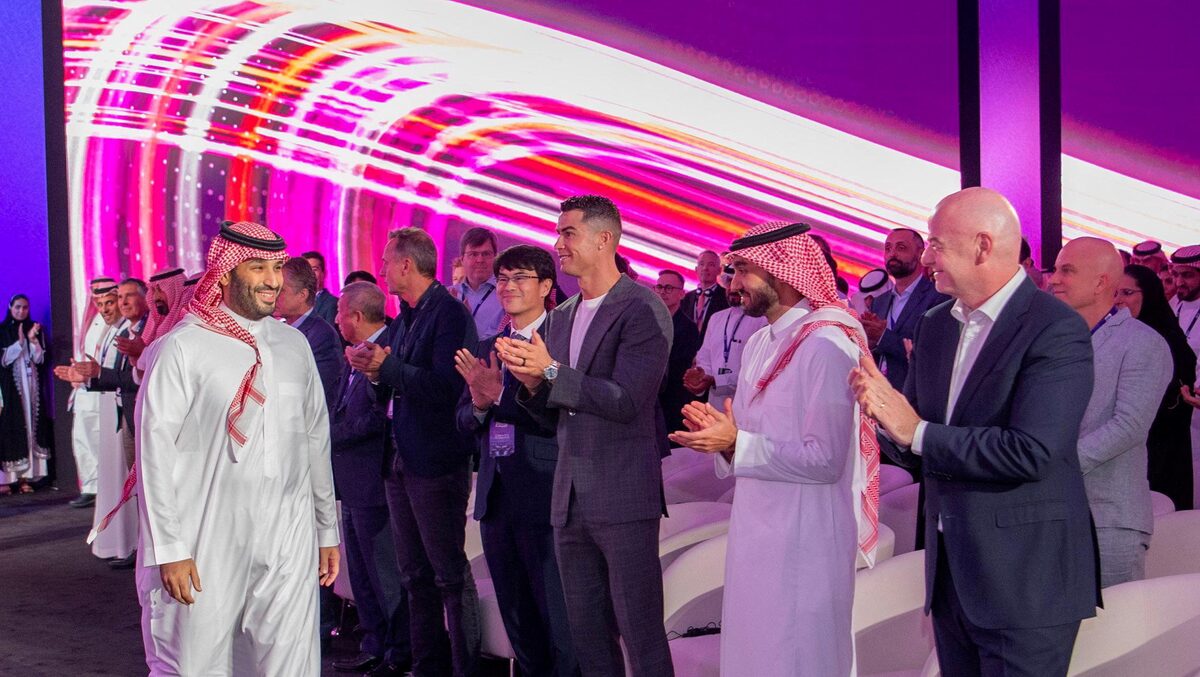On July 3, 2024, the Esports World Cup, the largest global event of its kind, will kick off in Saudi Arabia amid controversy in the gaming community. Saudi’s last attempt to become a hub for international esports has, once more, triggered discussions about the ethical implications of hosting major sports -and esports- events in countries with poor human rights records.
The Esports World Cup is the successor to Gamers8, a series of tournaments and gaming festivals hosted in 2023 by the Savvy Gaming Group, and the latest major esports project of this esports company owned by Saudi Arabia’s $700 billion Public Investment Fund. A Public Investment Fund that has made relevant investments in esports and games in recent years in an effort to enhance the kingdom’s progress towards “realizing the Vision 2030 objectives of diversifying the economy”. Specifically, this tournament, according to the press release announcing the launch of the event, aims to increase the gaming sector’s contribution to the kingdom’s GDP by more than SAR 50 billion by 2030 and create 39,000 new job opportunities. It also plans to draw visitors and tourists to Riyadh during the summer, when the country experiences a drop in hotel occupancy rates and tourism spending.
The event has caught the attention of gaming-specialized media thanks to offering a “life-changing prize money” of 60 million dollars -the largest prize pool ever awarded in the history of esports- and the feature of some of the most popular games in the world across different genres: League of Legends, Counter-Strike 2, Apex Legends, and Fortnite, among multiple others.
The League of Legends (LoL)’s involvement in the tournament is particularly interesting: in 2020, Riot Games, the developer of LoL among other famous games, announced a partnership with the Saudi state-backed city development NEOM for the League of Legends European Championship (LEC) that was canceled less than 24 hours later due to public backlash. More specifically, LEC/Riot staff and members of the LoL gaming community were preoccupied with the Kingdom’s human rights violations. It is therefore understandable why the renewed ties between Riot and Saudi Arabia for the 2024 Esports World Cup prompted, again, controversy among the LoL community. This time, however, it looks like Riot’s apologies will not be heard and Saudi’s money stands above moral values within the esports industry.
As a matter of fact, Saudi’s sponsorship can be seen by some as quite alluring at a time of so-called esports winter, a period following the 2021 and 2022 “bonanza” that is characterized by the lack of investments and the industry’s struggle to turn a profit. Nonetheless, as Travis Gafford, fan and voice of the esports industry for the past 13 years, states:
“I have heard many people suggest that (…) in order to survive we must do this. Even if it is true I have to ask (…), we deserve to exist then? If the only way for us to continue to do all of this is to partner with totalitarian regimes with a history of human rights abuse, what are we even doing? (…) When I signed up for this I though it was just going to be about games competitions and now I am making this video talking about assassinations and terrible governments and the decisions they are making”.
Saudi Arabia is already home to some of soccer’s biggest stars and co-owner of professional golf. Now the country wants to become the capital of esports in the coming years. This is sportswashing at its finest. Will the gaming community let Saudi Arabia trick them into thinking that the kingdom’s a “cool, forward-thinking, interesting place to go on holiday” or will they address the big elephant in the room, namely, Saudi Arabia’s appalling human rights violations?
We encourage the young gaming community not to cover or watch the Esports World Cup, saying loud and clear: not in my name. Young people deserve more, and although it is not fair for them to have to decide whether to enjoy their hobby or support human rights, this is where the gaming industry and its co-optation by Saudi money have led us.





